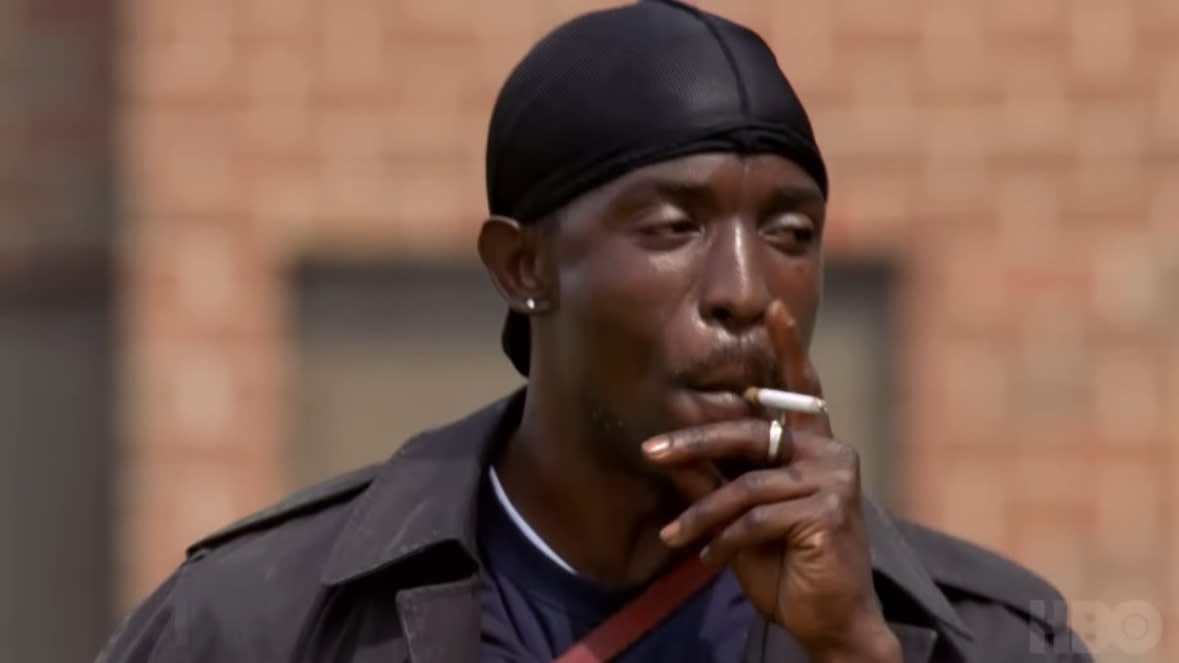
Omar Little is a memorable character in ‘The Wire’ – a robber with his own set of principles. He’s a fixture on Baltimore’s streets, known for skillfully navigating the drug trade without becoming a part of it. Omar specifically targets dealers, leaving ordinary people alone, and he operates with a unique combination of careful planning and established routines. His signature whistle warns others of his approach, and his personal rules – no swearing, no robberies on Sundays – set him apart in a chaotic world. Through loyalty to his crew, strategic partnerships, and a knack for using the system against itself, he becomes a legendary figure. The character was also groundbreaking for its portrayal of complex layers – including queer identity, a personal moral code, and street credibility – all within a single, compelling persona.
The Code: He Doesn’t Rob Civilians
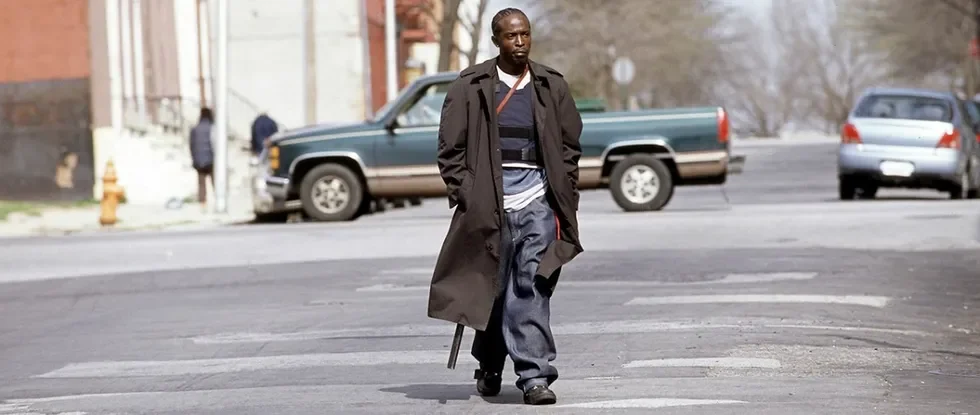
Omar has a strict code: he only goes after drug dealers and leaves everyone else alone. This principle guides all his actions, determining who he targets and where he searches for drugs. It’s why some people in the neighborhood accept him, and even help him by warning him of danger. It also means his enemies are limited to those with the motive and means to retaliate, so he has to carefully plan every operation. Throughout ‘The Wire’, this code is consistently shown as the basis for both his decisions and his street-level reputation.
The Trademark Whistle That Signals He’s Coming
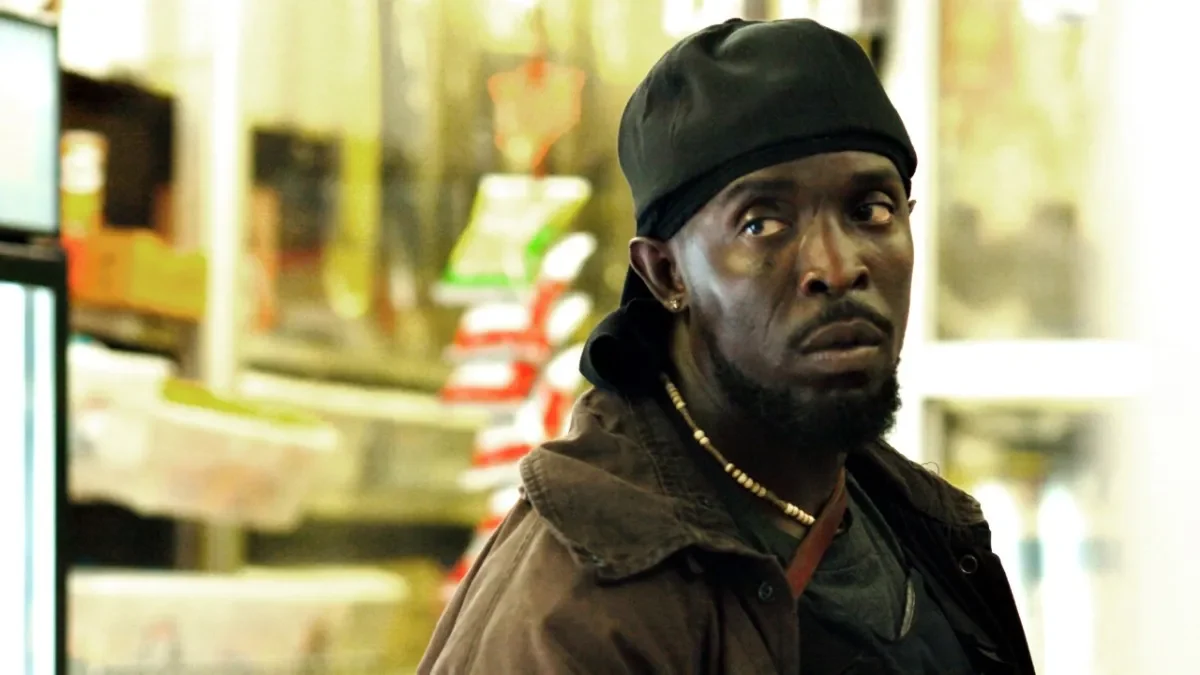
Before Omar arrives, people usually hear his distinctive, slow whistle of “The Farmer in the Dell.” This tune acts as a signal, warning those nearby – especially rival crews – to quickly disperse. The show uses the whistle both as a way to announce Omar’s approach and create chaos, and as a recognizable sign that everyone in the neighborhood knows signals his arrival. It transforms a familiar song into an instant alert, dramatically changing the atmosphere of the street. In ‘The Wire,’ this simple sound becomes a key part of how people track his movements.
The “Omar comin’!” Reputation on the Corners
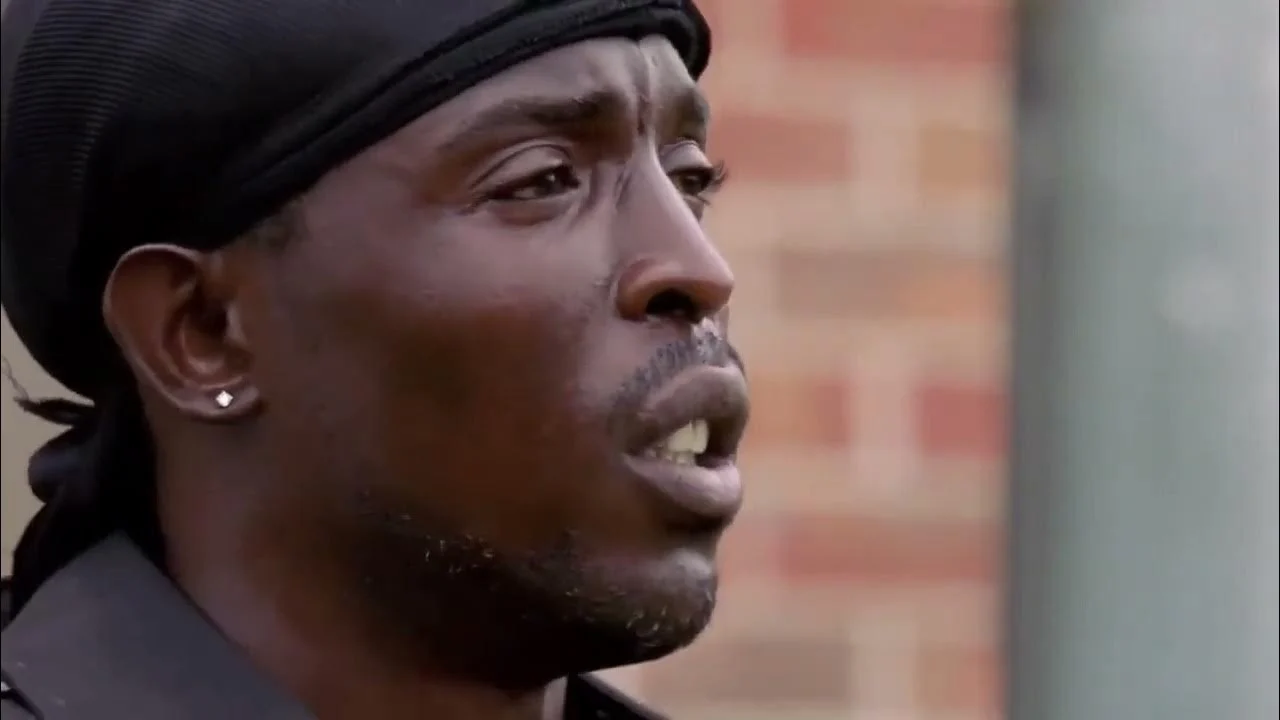
Just hearing Omar’s name sends street dealers into a frenzy – lookouts yell warnings, doors are quickly shut, and any drugs left out in the open are immediately hidden. He’s known for hitting quickly and fearlessly, even confronting rival crews on their own turf. His arrival throws off the normal flow of drug dealing, forcing dealers to conceal weapons and find new ways to make sales. This panic actually gives Omar power, turning fear into a weapon as effective as any gun. In fact, characters on ‘The Wire’ use his name as a quick way to signal immediate danger.
The Shotgun-and-Trench-Coat Look That Everyone Recognizes
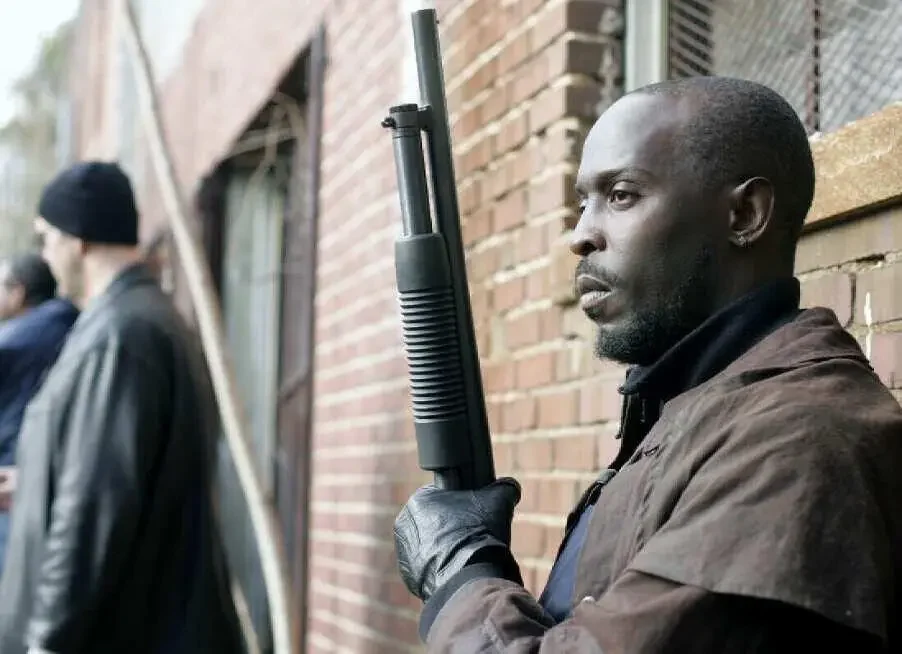
As a film buff, I’ve always been struck by how Omar’s visual presentation is so effective. That long coat he always wears isn’t just a style choice – it’s practical, letting him keep a shotgun hidden but still move freely. It’s amazing how much that silhouette – a figure in a coat, hinting at the weapon beneath – does before he even speaks. It immediately creates a psychological impact. And honestly, the shotgun makes sense for the kind of robberies he pulls off – quick, close-range stick-ups where getting the job done fast is more important than pinpoint accuracy. In ‘The Wire’, you see people recognize that shape from a block away; it’s instantly intimidating and iconic.
Courtroom Testimony That Turned a Case
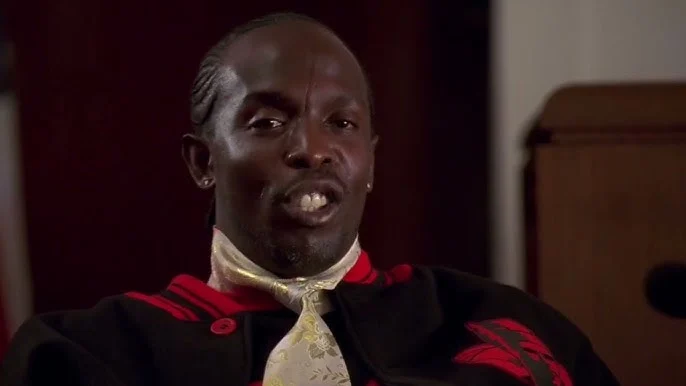
Omar’s courtroom testimony is key to convicting a member of the Barksdale organization. He clearly explains his background, defends himself against attacks on his character, and directly links the defendant to criminal activity. This scene demonstrates that someone involved in street life can damage an organization not only through violence, but also by revealing its inner workings in court. It also highlights how a witness’s trustworthiness is challenged and re-evaluated during cross-examination. Ultimately, Omar’s testimony significantly increases the legal pressure on a powerful criminal crew, as shown in ‘The Wire’.
Strategic, Limited Alliances with Law Enforcement
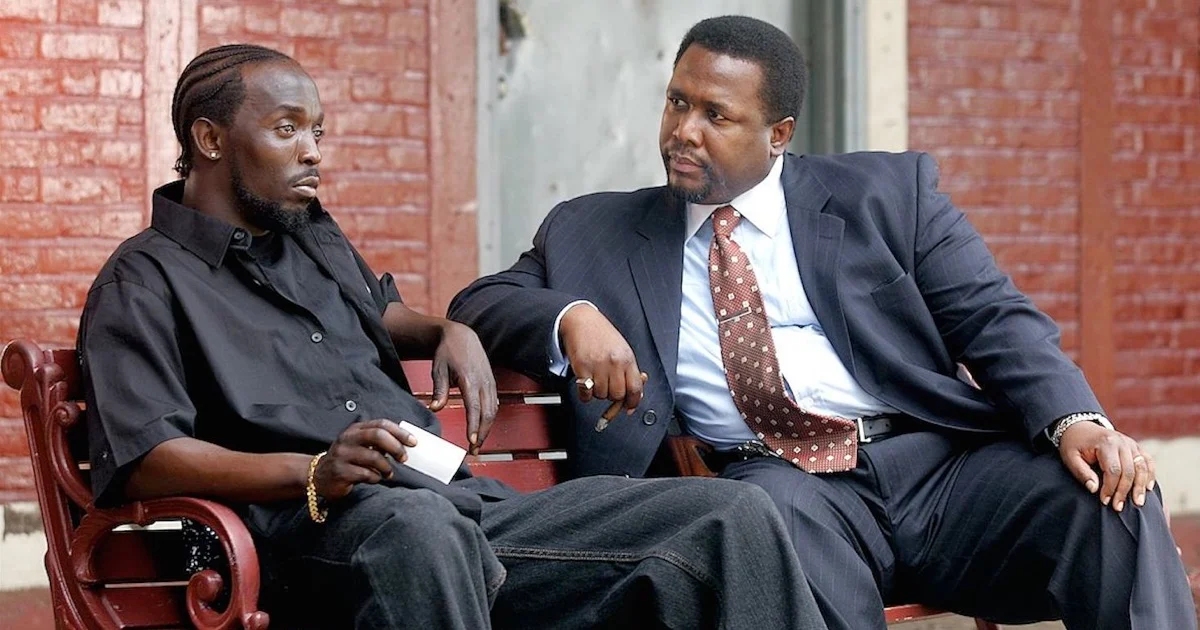
Omar sometimes shares information with detectives if it benefits him, trading details for protection or to gain an advantage. He avoids becoming a full-fledged informant, preferring to remain independent. This allows him to subtly harm his enemies or divert attention from himself after a major crime. It’s a pragmatic approach, understanding what motivates people on both sides of the law. As shown in ‘The Wire’, these interactions are strategic maneuvers, not a shift in loyalty.
No Profanity and a Sunday Truce
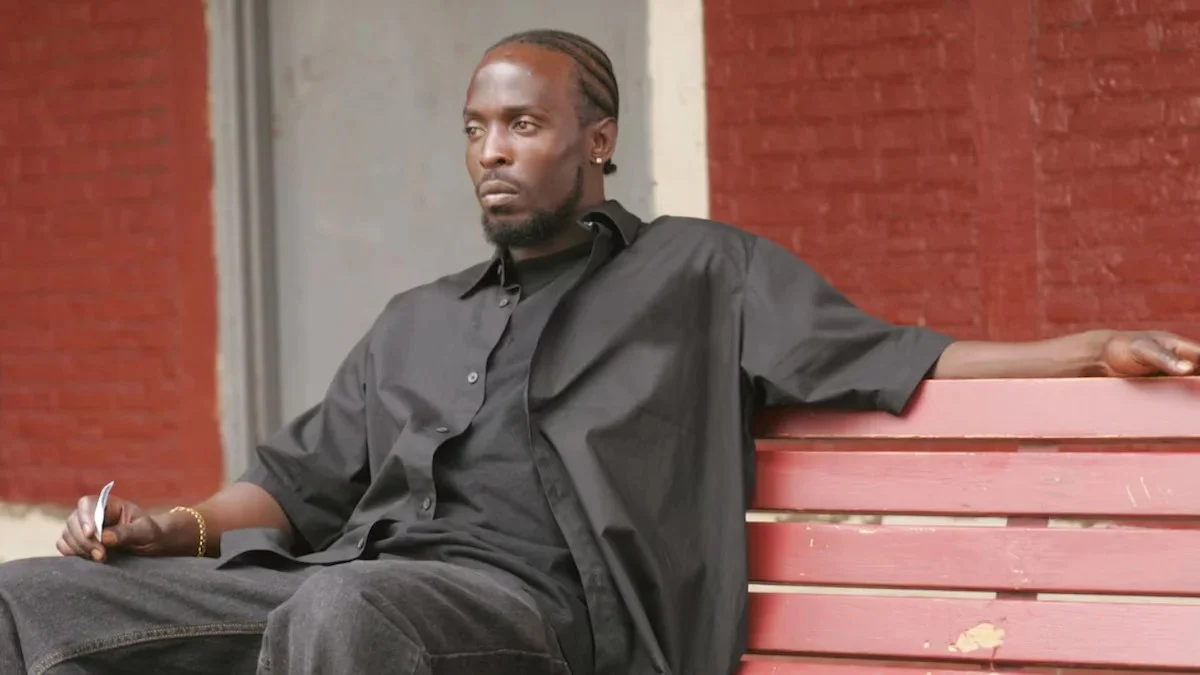
Omar has two firm personal rules: he never swears, and he always takes Sundays off. His refusal to use profanity makes his speech distinctive, and it’s a reliable habit people notice. He treats Sundays as a day of rest, creating a break from his otherwise relentless life. These consistent habits are well-known to those around him, who either respect them or plan accordingly. In the show ‘The Wire’, other characters specifically observe and acknowledge these traits.
Loyalty to His Crew and Partners
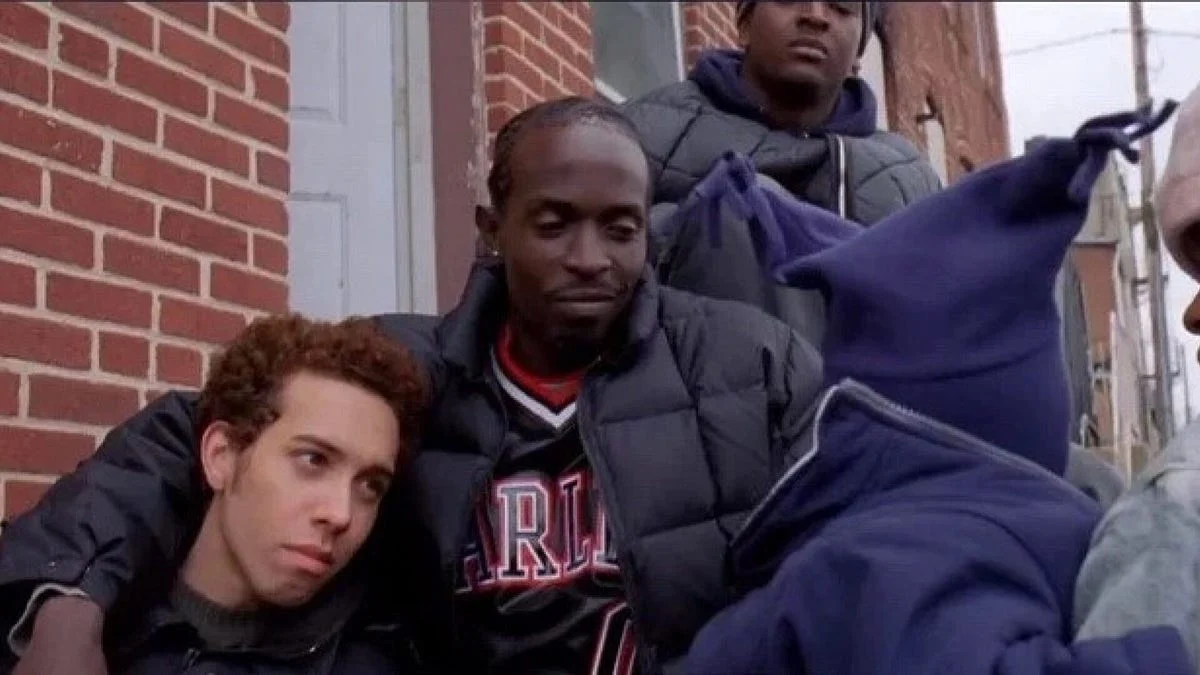
Omar operates with small, close-knit teams and values his partners – like Brandon and Renaldo – as true equals, not just tools to be used. He prepares his crew by training lookouts, openly sharing his strategies, and fairly compensating those who assist him. When his partners are hurt, he takes personal action, which often worsens his conflicts with larger gangs. This strong loyalty helps him attract new recruits, but it also increases the danger when his enemies retaliate. These close relationships are key to understanding many of Omar’s boldest decisions in ‘The Wire’.
Heist Planning, Surveillance, and Counter-Surveillance
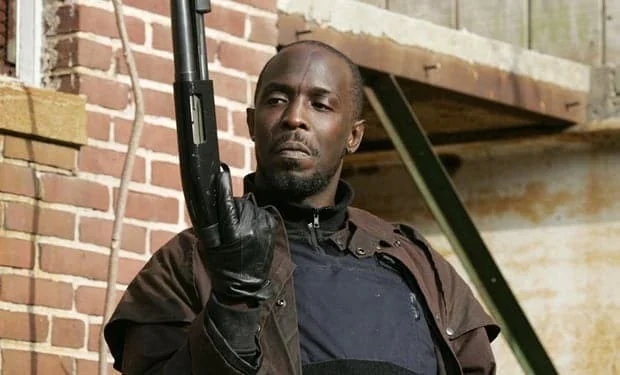
Omar carefully plans each robbery, first scouting locations and checking for potential dangers like weapons or safe houses. He uses disguises and unpredictable methods to confuse anyone watching, making it hard to anticipate his next move. After a successful robbery, he avoids repeating the same escape routes or habits. This focus on planning and deception allows him to pull off heists even when outnumbered. The show ‘The Wire’ often demonstrates how his meticulous observation leads to successful scores.
Cultural Impact Beyond ‘The Wire’

This character became popular because he was a compelling mix of street smarts, strong morals, and openly queer identity—none of which felt like a superficial trait. He’s often discussed by critics and academics when talking about flawed heroes, inclusive representation, and how high-quality television has changed. His memorable lines are frequently quoted in writing, teaching, and conversations about crime dramas and building believable characters. He also broadened the way crime shows depict complicated individuals who aren’t simply part of the established system. Within ‘The Wire’, he provides a unique perspective on power, how communities remember the past, and the consequences of one’s reputation.
Tell us about your favorite moments with Omar in the comments! Also, what one thing best shows who he is?
Read More
- 2025 Crypto Wallets: Secure, Smart, and Surprisingly Simple!
- Gold Rate Forecast
- Brown Dust 2 Mirror Wars (PvP) Tier List – July 2025
- Banks & Shadows: A 2026 Outlook
- Gemini’s Execs Vanish Like Ghosts-Crypto’s Latest Drama!
- Wuchang Fallen Feathers Save File Location on PC
- The 10 Most Beautiful Women in the World for 2026, According to the Golden Ratio
- QuantumScape: A Speculative Venture
- ETH PREDICTION. ETH cryptocurrency
- Uncovering Hidden Groups: A New Approach to Social Network Analysis
2025-10-31 09:45